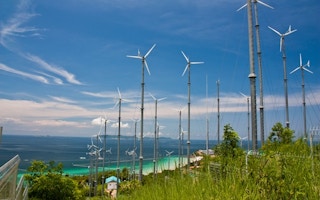Innovations in the renewable energy sector will be driven by collaboration among developing countries, signalling a shift from more established economies dominating technology development in this field.
Already, developing countries have poured in bulk investments of US$63 billion for solar technologies and US$58 billion for wind technologies — matching figures of investments by developed nations, says the Renewables 2015 Global Status Report released this week during the Asia Clean Energy Forum 2015 at the Manila headquarters of the Asian Development Bank.
Between 2013 and 2014, nearly half of the total US$270 billion global investments on renewable energy were from developing countries, according to data from the UN Environment Programme.
“
The region is learning more how renewables serve as catalyst for reliable energy to support national development.
Martin Hullin, program manager at REN21
In developing Asia, two countries figured in the global top ten list of countries generating the most number of jobs in the renewable energy sector: India, with 437,000 jobs, and Bangladesh, with 129,000 jobs, noted the report issued by the Renewable Energy Policy Network for the 21st Century (REN21).
Worldwide, there are 7.7 million jobs (both direct and indirect) in the renewable energy sector, with China, Germany and the European Union, Brazil, and the US topping the list.
“South-South collaboration dynamics is happening across Asia and other regions in Africa and Latin America, which a decade ago used to be only in more developed countries where the policy situations are more established for the uptake of renewables,” says Martin Hullin, program manager at REN21.
“Emerging economies are driving growth in all renewable technology sectors. The region is learning more how renewables serve as catalyst for reliable energy to support national development,” Hullin tells SciDev.Net. “We can see this from the diversification of policies to adopt a growth fuelled by clean energy.”
Hullin says that the REN21 global report used data from countries, industry associations, major NGOs, the academe, and even those from field reports and news reports as well as commitments made at conventions, to reflect the best available and real-time data on a country’s resource base and policy environment.
However, he adds that inconsistent regulations and lack of quality data on resource bases to guide policies remain a challenge for most developing regions.
For the former secretary general of the UN Framework Convention on Climate Change, Yvo de Boer, developing countries stand to benefit from using renewables over importing fossil fuels.
“We need to see renewables in the perspective of adopting a green model for growth, one that curbs carbon emissions,” Boer notes.










